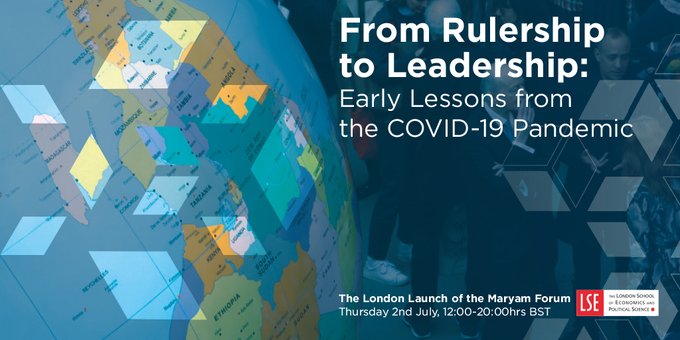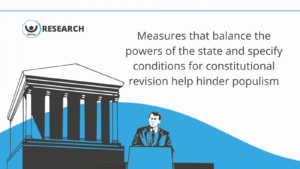 Populist governments of the right and left have some of the worst track records in dealing with Covid-19, the London School of Economics observes. At the same time, the virus has unleashed what The Economist called a “pandemic of power grabs”, as would-be autocrats take advantage of the emergency to limit rights and grant themselves enhanced powers. The attack by authoritarian populists against the institution of liberal democracy has become even more formidable, while autocrats who manipulate or hide death counts remind the world why democracy and press freedom are so important – and why they remain crucial to guarantee government responsiveness in hard times like these. Will democracy or autocracy emerge the winner from the pandemic?
Populist governments of the right and left have some of the worst track records in dealing with Covid-19, the London School of Economics observes. At the same time, the virus has unleashed what The Economist called a “pandemic of power grabs”, as would-be autocrats take advantage of the emergency to limit rights and grant themselves enhanced powers. The attack by authoritarian populists against the institution of liberal democracy has become even more formidable, while autocrats who manipulate or hide death counts remind the world why democracy and press freedom are so important – and why they remain crucial to guarantee government responsiveness in hard times like these. Will democracy or autocracy emerge the winner from the pandemic?
 Those questions will be addressed in a 2 July forum (above) hosted by the School of Public Policy) and Institute of Global Affairs with Pulitzer-prize winning historian Anne Applebaum), a staff writer for The Atlantic and National Endowment for Democracy (NED) board member; Luis Garicano, a Member of the European Parliament, leader of Ciudadanos in Europe, and Vice President for Economic Affairs of Renew Europe; Mehmet Şimşek, Deputy Prime Minister for Economic and Financial Affairs of Turkey during 2015-2018; Andrés Velasco), Dean of the LSE School of Public Policy. The event is part of the Maryam Forum Launch: “From Rulership to Leadership: Early Lessons from the COVID-19 Pandemic“.
Those questions will be addressed in a 2 July forum (above) hosted by the School of Public Policy) and Institute of Global Affairs with Pulitzer-prize winning historian Anne Applebaum), a staff writer for The Atlantic and National Endowment for Democracy (NED) board member; Luis Garicano, a Member of the European Parliament, leader of Ciudadanos in Europe, and Vice President for Economic Affairs of Renew Europe; Mehmet Şimşek, Deputy Prime Minister for Economic and Financial Affairs of Turkey during 2015-2018; Andrés Velasco), Dean of the LSE School of Public Policy. The event is part of the Maryam Forum Launch: “From Rulership to Leadership: Early Lessons from the COVID-19 Pandemic“.
The central claim of all populist movements is to get rid of “the establishment,” or whatever is posited as lying between “us” (the people outside) and the state (inside apparatuses of decision makers, elected or appointed), Nadia Urbinati writes in Me the People.
 Contemporary scholarship on the populist renaissance we have recently seen within constitutional democracy can be divided into two groups, according to whether it treats populism as an ideology and a style, or whether it treats it as a strategic movement to remake political authority, she observes. The ideological reading is designed to answer the ontological question: What is populism? The strategic reading is designed to answer a different question: What is the populist strategy for conquering power, and what does populism do to democratic institutions?
Contemporary scholarship on the populist renaissance we have recently seen within constitutional democracy can be divided into two groups, according to whether it treats populism as an ideology and a style, or whether it treats it as a strategic movement to remake political authority, she observes. The ideological reading is designed to answer the ontological question: What is populism? The strategic reading is designed to answer a different question: What is the populist strategy for conquering power, and what does populism do to democratic institutions?
She argues that populism should be regarded as a new form of representative government, one based on a direct relationship between the leader and those the leader defines as the “good” or “right” people. Populist leaders claim to speak to and for the people without the need for intermediaries—in particular, political parties and independent media—whom they blame for betraying the interests of the ordinary many. Urbinati shows that, while populist governments remain importantly distinct from dictatorial or fascist regimes, their dependence on the will of the leader, along with their willingness to exclude the interests of those deemed outside the bounds of the “good” or “right” people, stretches constitutional democracy to its limits and opens a pathway to authoritarianism.







